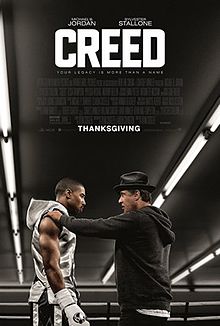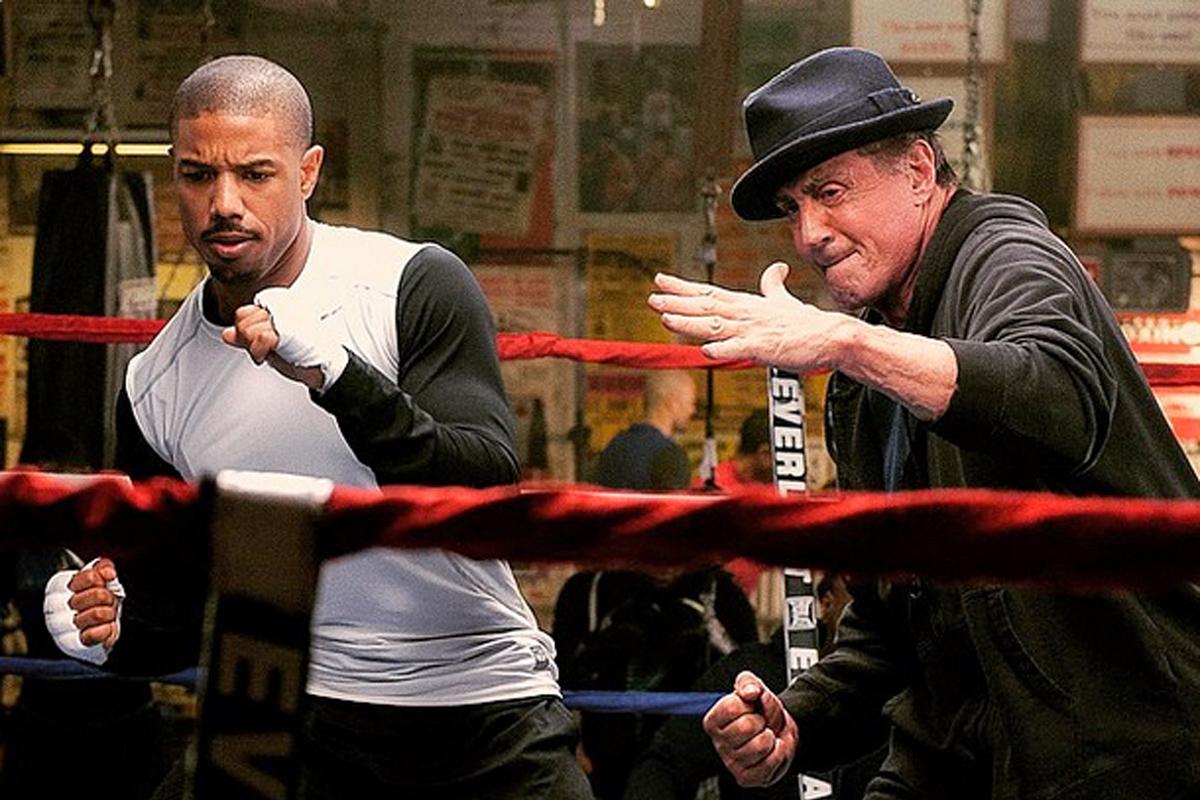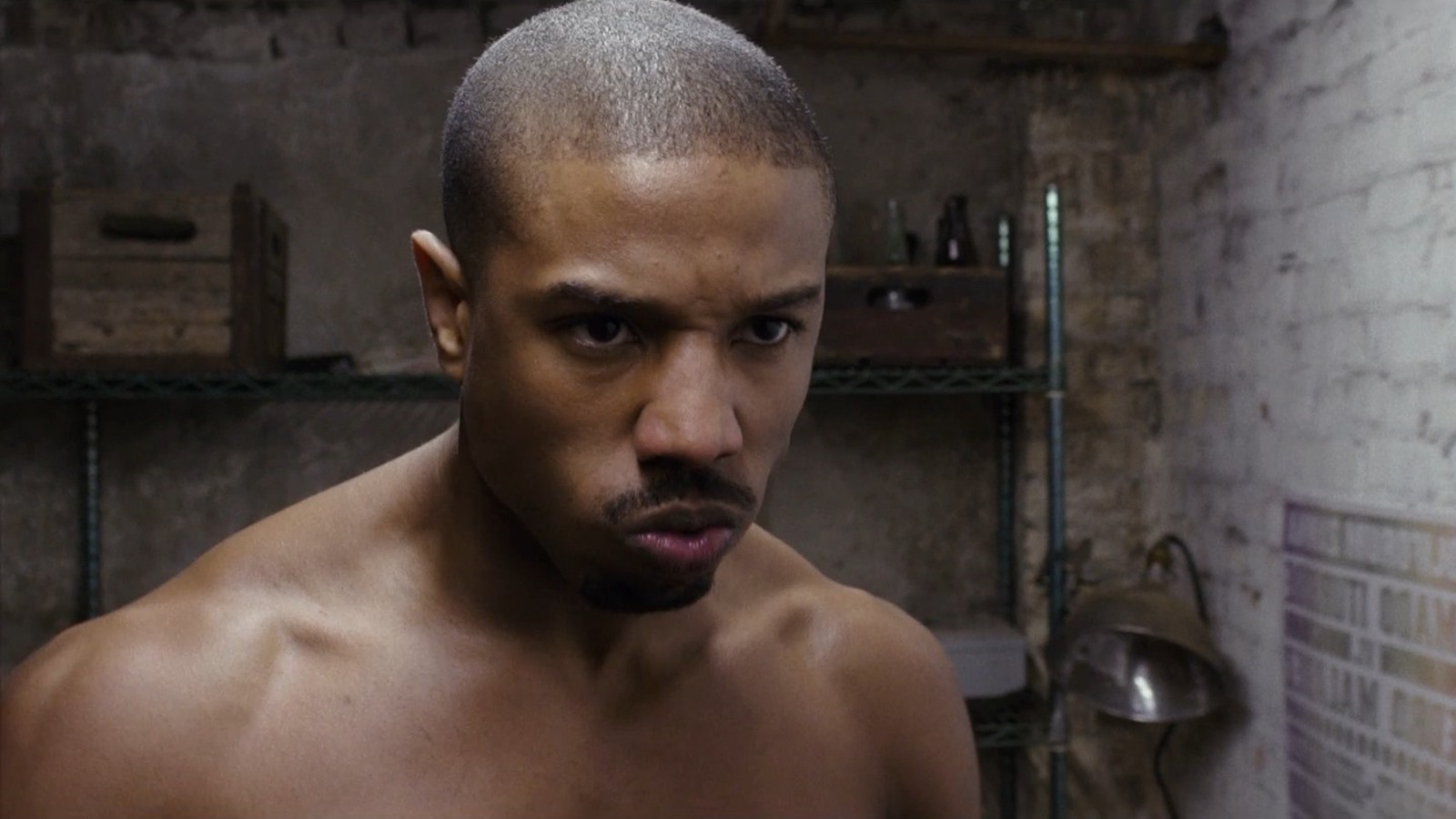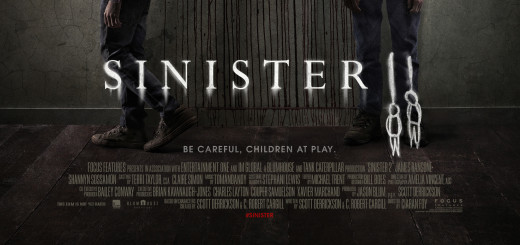CREED Review
Director: Ryan Coogler
Genre: Sports Drama
Release: 2015
29-year-old Oakland native Ryan Coogler has a lot going for him as a director on a purely technical level – while his long steadicam tracking shots are spectacles unto themselves, his thorough approach to documenting his performer’s movements help to offset his showiness. Coogler’s staging often has a pleasing sense of spatial depth that highlights the way his performers interact with their surroundings, and his keen feel for location is shown through the authentic depiction of a neighborhood in Philadelphia that shows signs of urban wear and tear.
While Coogler’s formal instincts are generally strong, his dramaturgical approach is wanting. He tends to telegraph conceptions of his characters, resulting in surface-level observations. CREED has the novel idea to use the history of the Rocky franchise to explore the tensions that Adonis Creed (Michael B. Jordan) has to deal with while living in the shadow of his father, Apollo Creed, a legendary boxer who died before Adonis was born. However, the film’s attempt to inject a human dimension into its genre trappings often falls short because the film never really goes beyond the superficial understanding that Adonis channels the pain of being fatherless into his boxing and tries to distinguish his career from Apollo’s.
Sylvester Stallone doesn’t quite know how to hit the dab
The film begins with Adonis’ step mother pleading Adonis to quit boxing because of how dangerous it is. The film quickly discards that rigged dramatic device, but never really examines Adonis’ reasons for pursuing boxing. CREED’s central contradiction, that Adonis wants to forge his own legacy by choosing the same profession as his father, is left unexplored. What the film gives us instead is a poignant relationship between Rocky Balboa (Sylvester Stallone) and Adonis, which starts with Rocky initially turning down Adonis’s request to train, only to agree to take Adonis on in part due to Rocky’s respect for Apollo.
Coogler conveys the sense that Rocky’s reluctance to get back into boxing is related to his unwillingness to relive painful moments in (and around) the ring. Rocky’s stoic façade breaks down in one scene in which he talks about his estranged son, thus making Adonis the ideal surrogate son. While there is something to be said for the heartening sentimentality of this intergenerational, interracial relationship, the film lacks a dramatic focus to give shape to its disparate narrative details. At points, the film appears as though it might deal with the choices regarding whether to accept the challenges from boxing promoters who want either to exploit the Apollo mythos or have their boxer take on an inexperienced opponent.
That feel when you get to J. Cole’s verse on “Planez”
However, Coogler never really invests much attention to his disparate threads, instead prioritizing the worthwhile endeavor of imbuing formulaic material with real emotion. Coogler is at his best when his characters are at their most vulnerable, such as whenever Rocky registers the emotional residue of the past on his worn-out visage and the funny moment in which Adonis nervously blurts that he needs to use the bathroom before a fight. Unfortunately, CREED hits its story beats without much personality or variation in perspective on the characters. The film stumbles into flimsy melodramatic beats – Adonis’ girlfriend Bianca (Tessa Thompson) gets mad at Adonis because he hid the truth about his father; Rocky faces a choice about his health that is not treated with serious weight; Rocky and Adonis bicker for some reason or other about them not really being family; Adonis flips out when someone refers to him as Baby Apollo. It is hard to lay the blame at Coogler’s feet for a script that lacks a strong dramatic framework, but he exacerbates the film’s structural problems with an unrestrained approach to the film’s under-contextualized emotional peaks. Coogler might have mitigated the script’s problems by allowing the air to sit around the film’s drama, but instead he glosses over what little dissonance is in the script with tired affirmations about the need to fight.
Verdict: Do Not Recommend






